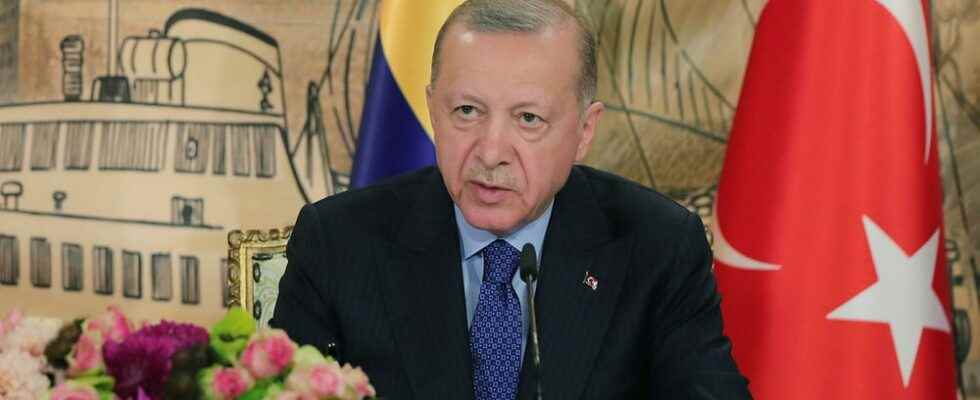Turkey believes that there are a number of urgent problems in Sweden that must be addressed before Turkey can approve a Swedish NATO application. In SVT’s program Agenda, Turkish President Recep Tayyip Erdogan’s chief adviser, Ilnur Cevik, talks about Saturday’s telephone conversation between the president and Prime Minister Magdalena Andersson.
– They agreed to disagree. There are issues that are urgent, but Swedish legislation prevents them, they say, says chief adviser Ilnur Cevik and refers the Swedish Prime Minister and her government to SVT.
Chief Adviser Radar during the interview raised a number of different issues that put the brakes on the ongoing negotiations. Turkey stands by its list of demands, which includes the extradition of Turkey-branded PKK terrorists. In addition to the extraditions, Turkey demands that Sweden put an end to PKK-led activities in Sweden.
– They (Sweden) agree that the PKK is a terrorist organization but they do not agree that there are legal opportunities to stop them in Sweden. That is a problem, says Ilnur Cevik in SVT Agenda.
According to Swedish freedom of expression legislation, opinions in support of the PKK can not be stopped. Turkey expert Paul Levin believes that Swedish and Turkish legislation differ markedly on the issue.
– The PKK is branded as a terrorist organization by Sweden, but it is allowed to wave flags belonging to terrorist groups. This is interpreted as Sweden being friendly to the PKK, said Paul Levin in an interview with DN on 19 May.
Whether a solution can be reached depends on Sweden, according to the adviser.
– Time is limited, but within a few months I think a solution can be found. But it requires that both the Swedish government and the Riksdag find themselves in this. Governments come and go, but what the Riksdag decides remains, says Ilnur Cevik to SVT Agenda.
In Finland, the country has a foreign minister Haavisto responded to the Turkish demand to limit the PKK’s activities. In an interview with EPN he says that the Finnish state will monitor any terrorist links to the PKK.
– We can certainly give this type of guarantee to Turkey. It is important that we, as the PKK is branded a terrorist organization in Europe, do our part to ensure that no terrorist activities are prepared on Finnish soil, says Pekka Haavisto (Green) to EPN.
No similar statement has been heard from the Swedish government. On Saturday, Prime Minister Magdalena Andersson commented on the telephone conversation with Erdogan in a written comment.
“I emphasized that Sweden welcomes the possibility of cooperation in the fight against international terrorism and emphasized that Sweden is clearly behind the fight against terrorism and the terrorist listing of the PKK,” Andersson writes.
Read more: Turkey expert: Hultqvist’s Kurdish contacts can affect NATO application
Background: Turkey and the Kurds
● Turkey’s threat to stop Sweden’s NATO membership is linked to the differences between the Turkish state and the country’s Kurdish population.
● The Kurds have waged a long struggle for their political rights, something that has been met with harsh methods. The conflict has periodically been very bloody.
● Sweden and the EU have partly drawn different conclusions than Turkey on which of the organizations involved should be considered terrorists.
● The Kurdish PKK, which has long had an armed conflict with the Turkish state, is branded a terrorist by both Sweden and the EU. But Turkey believes that a number of other organizations should also be seen as terrorists, partly because of ties to the PKK.
● This includes the YPG, the armed forces of the Syrian Kurds, which played a crucial role when the terrorist sect IS was defeated in northern Syria. YPG was part of the US-led coalition against IS, in which Sweden also participated. At the same time, Turkey has been fighting the YPG militarily inside Syria, for fear that the success of the Syrian Kurds will spill over into the situation inside Turkey.
● The Turkish regime also has a very tough stance on the Kurdish party HDP, whose leader Selahattin Demirtas has been imprisoned since 2016.
● The Kurds live in four countries in the area: Turkey, Syria, Iraq and Iran. In addition, there is a large Kurdish diaspora, including in Sweden.
Show more
